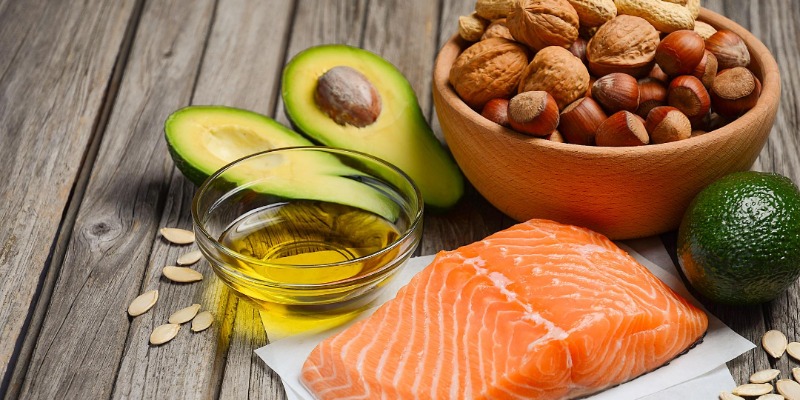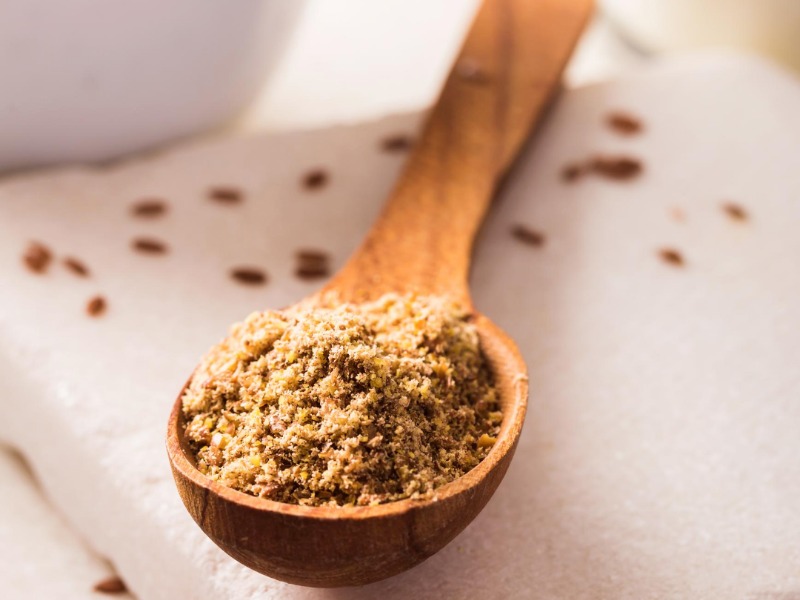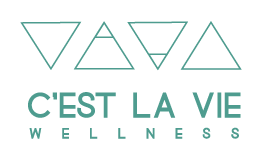How To Heal Acne-Prone Skin Naturally: Part 2
 by Dr. Sofie Desforges-Bell, naturopathic doctor
by Dr. Sofie Desforges-Bell, naturopathic doctor
Part 2 – Nutrition
When it comes to the gut-skin connection, the first step is to heal the gut. By removing the inflammatory foods from your diet and adding in some healing foods, you can support the healing of the skin from the inside out. In the case of acne, there are some main culprits that are working against you.
Dairy
 There are a few reasons why dairy might be increasing your acne lesions. First dairy is quite an inflammatory food for most people and many are unable to digest it properly. Inflammation can present itself in various ways and for some it will affect the health of their skin. Many skin conditions seem to improve once dairy is removed from the diet. According to WebMD, cow’s milk contains “components related to the hormone testosterone that may stimulate oil glands in the skin, setting the stage for acne”. Since many skin conditions (eczema, psoriasis, dermatitis) are the result of an allergic reaction to a specific food, removing milk and other common allergens may be a good place to start.
There are a few reasons why dairy might be increasing your acne lesions. First dairy is quite an inflammatory food for most people and many are unable to digest it properly. Inflammation can present itself in various ways and for some it will affect the health of their skin. Many skin conditions seem to improve once dairy is removed from the diet. According to WebMD, cow’s milk contains “components related to the hormone testosterone that may stimulate oil glands in the skin, setting the stage for acne”. Since many skin conditions (eczema, psoriasis, dermatitis) are the result of an allergic reaction to a specific food, removing milk and other common allergens may be a good place to start.
Sugar
 Similarly to dairy, sugar is an inflammatory food and provides little to no nutritional value unless it occurs naturally in the whole food (as in fruit). The same can be said about refined and highly processed carbohydrates or any other food that is high on the glycemic index. Both sugar and dairy also increase Insulin-like Growth Factor 1 (IGF1) levels in the body. This can lead to inflammation, hormonal changes, increased oil production and new acne lesions.
Similarly to dairy, sugar is an inflammatory food and provides little to no nutritional value unless it occurs naturally in the whole food (as in fruit). The same can be said about refined and highly processed carbohydrates or any other food that is high on the glycemic index. Both sugar and dairy also increase Insulin-like Growth Factor 1 (IGF1) levels in the body. This can lead to inflammation, hormonal changes, increased oil production and new acne lesions.
Food Sensitivities
 In addition to these two main inflammatory foods, many people also have individualized food sensitivities to certain foods. An IgG Food Sensitivity Test (FST) or doing an elimination diet can help you to find out what your individual sensitivities are. Eliminating these foods from your diet will also help to bring down the inflammation in your body. Please reach out to me, Dr. Sofie, ND, if you are interested in finding out more about your own individualized food sensitivities and the IgG Food Sensitivity Test.
In addition to these two main inflammatory foods, many people also have individualized food sensitivities to certain foods. An IgG Food Sensitivity Test (FST) or doing an elimination diet can help you to find out what your individual sensitivities are. Eliminating these foods from your diet will also help to bring down the inflammation in your body. Please reach out to me, Dr. Sofie, ND, if you are interested in finding out more about your own individualized food sensitivities and the IgG Food Sensitivity Test.
Skin Healing Foods
Now that you’ve eliminated some offending and inflammatory foods from your daily diet, it’s time to incorporate some healthy foods to help heal your skin from the inside out.
Omega-3 Essential Fatty Acids (EFAs)
 The Standard American Diet (SAD) is riddled with omega-6 EFAs. Although omega-6s are essential for us to consume in our diets, in excess, these become quite inflammatory. To balance these out, we want to increase our intake of omega-3 EFAs and encourage a ratio in favour of these instead, to leverage its anti-inflammatory effects. This means consuming foods like fatty oily fish, nuts and seeds, avocados, and more. Consult with your natural healthcare practitioner to see if additional fish oil supplementation may be a healthy option for you.
The Standard American Diet (SAD) is riddled with omega-6 EFAs. Although omega-6s are essential for us to consume in our diets, in excess, these become quite inflammatory. To balance these out, we want to increase our intake of omega-3 EFAs and encourage a ratio in favour of these instead, to leverage its anti-inflammatory effects. This means consuming foods like fatty oily fish, nuts and seeds, avocados, and more. Consult with your natural healthcare practitioner to see if additional fish oil supplementation may be a healthy option for you.
Pumpkin Seeds
 Pumpkin seeds serve a dual function for acne. For those with hormonal acne, androgen hormones (such as testosterone) are too elevated and pumpkin seeds can help counteract this effect. Additionally, they offer a good source of zinc. Those who are deficient in this mineral tend to be more predisposed to acne lesions. Consuming this food could be a good way to replenish your levels.
Pumpkin seeds serve a dual function for acne. For those with hormonal acne, androgen hormones (such as testosterone) are too elevated and pumpkin seeds can help counteract this effect. Additionally, they offer a good source of zinc. Those who are deficient in this mineral tend to be more predisposed to acne lesions. Consuming this food could be a good way to replenish your levels.
Ground Flax Seeds
 Flax seeds are super nutritious for so many reasons. When it comes to acne, they mostly act by helping to regulate hormones, in this case estrogen. As a phytoestrogen, ground flax seeds will help to modulate this hormone by either increasing it when low or decreasing it if too high. This is particularly helpful for women of reproductive age that notice that their acne either flares or worsens during the luteal phase (the 1-2 week period prior to their menses, called the luteal phase).
Flax seeds are super nutritious for so many reasons. When it comes to acne, they mostly act by helping to regulate hormones, in this case estrogen. As a phytoestrogen, ground flax seeds will help to modulate this hormone by either increasing it when low or decreasing it if too high. This is particularly helpful for women of reproductive age that notice that their acne either flares or worsens during the luteal phase (the 1-2 week period prior to their menses, called the luteal phase).
Find out how healing the gut and adding specific nutrients are important part of reducing acne in Part 3 of this blog series.

I was drawn to naturopathic medicine as it allows me to explore the root cause of disease in a holistic manner. I love incorporating evidence-based natural medicines with more traditional therapies. By individualizing treatment plans to address each patient’s unique health journey, I guide my patients to optimize their physical, mental-emotional, and spiritual wellbeing.
